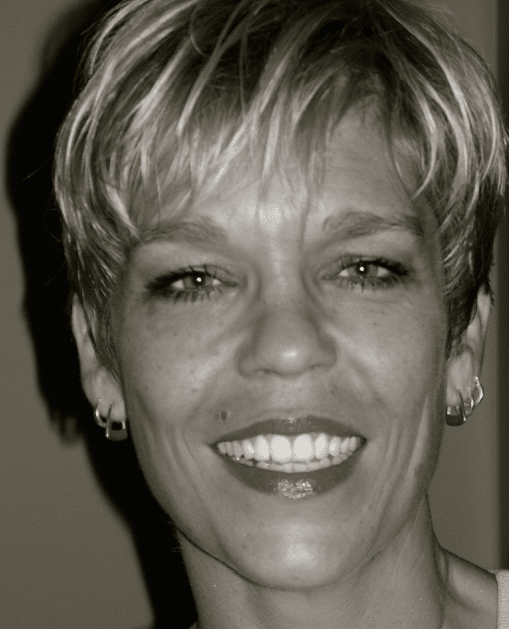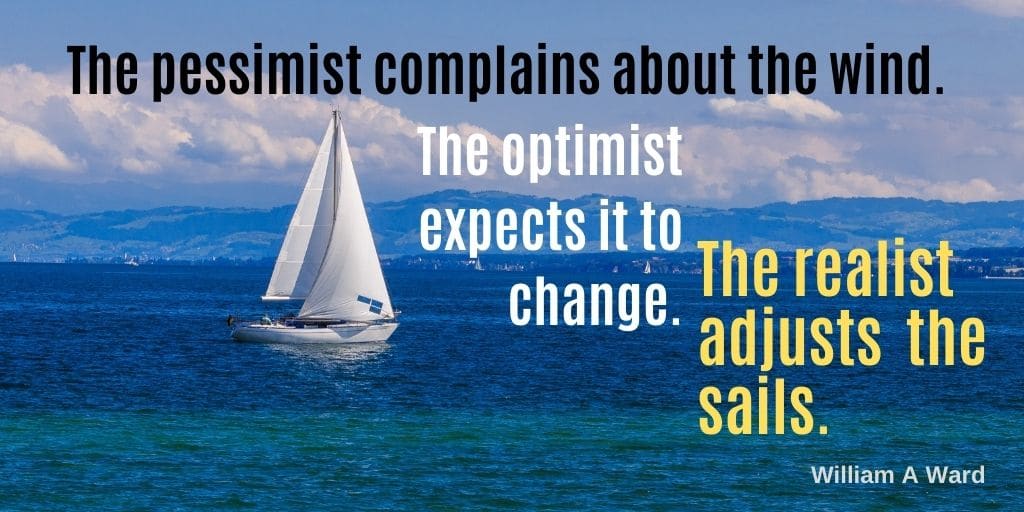If last year didn’t turn out to be your best writing year ever, no worries. It’s possible to overcome the hurdles you identified in part one of this series. In that post, you were asked to reframe your perception of failure. Instead of beating yourself up about how you failed to finish your writing pojects, you were encouraged to focus on the why. Now, it’s time to utilize a three-part strategy to get in the right mindset to achieve writing success in 2021.
After all, it’s a new year. You don’t want to keep making the same mistakes.
Are You Unmotivated by Your Writing Goal?
I’m a big believer in writing your passion. A full-length book takes effort and concentration to write, and the self-editing phase can be arduous. So why would you make that effort or take on that challenge for a topic you don’t care about?
If you’ve lost your passion for your passion writing project, how do you get it back? It’s as easy as this three-step process.
- Step Back
- Evaluate
- Adjust your Sails
1. Step Back
If you find yourself procrastinating because you’ve lost your motivation, take a break from your work. (Not a procrastination break, but a conscious break.) Put your writing project aside, and spend a few days thinking about it and weighing up the pros and cons of continuing. Giving up on a project you’ve already made progress on is a difficult decision, so it deserves some serious thought.
2. Evaluate
If your project has dragged on too long, maybe your priorities have changed.
We’re all writing books for different reasons. Some of us are writing to establish ourselves as thought leaders in our niche. Others are focused on creating an income stream or for personal growth. Whatever your reason, it’s time to question whether there’s still value to finishing your project.
I procrastinated on my Cambodia travel guide. However, it supports my brand and aligns with my growth strategy. I knew I couldn’t give up on it, so I drilled down on the root cause that was sapping my motivation and kept asking Why?
I wanted to get to that lightbulb moment and ended up having two. I conceded that I didn’t have the enthusiasm to do more research rounds for the information that was out of date and knew I had to think of a way around it.
I accepted I’d lost belief in my book—in most part because of the pandemic and the impact it’s had on travel. People just aren’t traveling much anymore, and we don’t know when that will change. So I questioned the value of writing a travel guide.
Time to adjust my sails.
3. Adjust your Sail
Depending on how much content you’ve already written, adjusting your sails can be as simple as getting a motorboat to help your boat do an about-turn. Or it can be as challenging as navigating the Titanic past an iceberg.
Identifying your audience is essential when writing a book. When you’re at an impasse, it’s helpful to confirm who you’re writing for.
Could adjusting your target audience reinvigorate your writing project?
Using the example of my Cambodia guide again, I realized I could kill two birds with one stone. I could eliminate the need for more research and get excited about the project by changing the scope and target audience for my book. Here’s my plan:
- I’m keeping the evergreen content and cutting the time-sensitive content.
- I’m changing the book from an informational travel guide to an inspirational I plan to include the joys and challenges of backpacking with my husband for the first time and recount our volunteer activities during the trip.
- My target audience is baby boomers traveling to Cambodia who want practical advice about independent travel. However, now it also has the potential to appeal to armchair travelers, too.
Old Project, New Energy
With this change in direction and new plan, I’ve reinvigorated my energy for the writing project. I don’t have to do research—I’m writing from the heart and memory. I’ve narrowed my target audience, so I’m writing a book that hasn’t already been written. And the guide is no longer contingent on pandemic lockdown restrictions being lifted.
I feel slightly guilty that I even considered leaving this project in the dust. I’m suddenly filled with excitement about writing in this new genre and creating a book that distinguishes itself from other books about Cambodia.
3 Questions to Help you Adjust Your Sails
If you feel uncertain about developing a new strategy for your writing project, answer these three questions. Your answers will help you determine how to adjust your sails.
- Do you need to start your project from scratch, or is some of your content salvageable?
- Could you adjust your content to appeal to a different niche audience?
- If the pandemic (or something else) has impacted the potential appeal of your book, can you approach your topic from a different perspective?
The goal of this exercise is not to get motivated by your project. It is to get excited by it. So how can you adjust your book’s scope or audience to feel that bubble of excitement in the pit of your stomach?
Are You Overwhelmed by Your Writing Project?
The other challenge we identified in part one is the feeling of being overwhelmed. Overwhelm can arise when you have more commitments than time. Also, you might feel overwhelmed when you lack control over what you need to do.
That’s the situation I faced with my book marketing project. I was suffering from information overload, and I didn’t know what to focus on next. I found myself jumping around from chapter to chapter and not making any progress.
I followed the same three-step process we used above and found a solution to being overwhelmed. If you are struggling with overwhelm, answer these questions:
1. Step Back
Take a break. Sometimes you get so knee-deep in the details that you lose sight of the big picture. It helps to get in the right headspace to objectively evaluate what’s essential and what you can let go of.
Give yourself a couple of days, and when you’re ready, dive back into your project.
2. Evaluate
Look at the content you plan to write and make sure you’re focused on the right things. With your target audience in mind:
- Review your book outline and chapter summary. If you didn’t create one, now’s the time to write a list of all the content you want to include in your book.
- Identify the content that isn’t relevant to your target audience or isn’t important enough to be included in your book. Delete that from your list.
- Prioritize the remaining content based on the level of effort required to write it. Take a blank piece of paper and create three columns:
- Content you’re knowledgeable about that doesn’t need any research.
- Content that needs a little fact-checking.
- Content that needs intensive research.
For my marketing book project, I ended up cutting a lot of the chapters I’d planned. I realized they weren’t relevant to nonfiction authors. It felt great to cross those off my list.
Once you’ve created your three-column list, you’ve started reclaiming control of your book. At that point, your feelings of being overwhelmed will begin to fade.
3. Adjust your Sail
Now it’s time to organize your writing time so you can start crossing tasks off your list.
When I have a short writing timeframe, I work on the content I’m knowledgeable about first. When I have a more extended deadline, I tackle the content that needs research. You also can prioritize based on whether you’re in the mood to write or the mood to research. We all have different ways of working, so experiment to find an approach that works for you.
No matter what hurdle or emotion is obstructing progress on your writing project, adjust your sails, and find a strategy that helps you get to “done.”
What projects will you breathe new life into in 2021, and what challenges are you facing with your writing goals? Tell me in a comment below. And please share this post with another writer.
About the Author
Jay Art ale abandoned her corporate career to become a digital nomad and full-time writer. She’s an avid blogger and a nonfiction author helping travel writers and travel bloggers achieve their self-publishing goals. Join her at Birds of a Feather Press where she shares tips, advice, and inspiration to writers with an independent spirit.
ale abandoned her corporate career to become a digital nomad and full-time writer. She’s an avid blogger and a nonfiction author helping travel writers and travel bloggers achieve their self-publishing goals. Join her at Birds of a Feather Press where she shares tips, advice, and inspiration to writers with an independent spirit.
 Do you want to learn more about becoming a nonfiction author? Check out the Nonfiction Writers’ University. Get the basic education you need and the coaching to help you succeed as a nonfiction writer. Take advantage of monthly live educational and group coaching events. Enjoy a 30-day trial membership for only $1.
Do you want to learn more about becoming a nonfiction author? Check out the Nonfiction Writers’ University. Get the basic education you need and the coaching to help you succeed as a nonfiction writer. Take advantage of monthly live educational and group coaching events. Enjoy a 30-day trial membership for only $1.
Do you want a more advanced approach to your nonfiction writing education? Join the Nonfiction Writers’ University MASTERS program. Receive ongoing live Certified High Performance Coaching, Author Training, and Authorprenuership Training as well as monthly educational and group coaching events. Learn all the steps to becoming a successful—and profitable—author. Discover how (finally) to write consistently, boldly, enthusiastically, and productively. Develop the mindsets, strategies, habits of the world’s most successful writers. Click here to learn more.


Ruth Singbeil says
Hi, I am very Interest in support on my book. I’m already done the draft of 17 chapters. I’m really interested in writing skills, techniques, and editor connections/recommendations.
Nina Amir says
I offer book coaching and developmental editing of manuscripts on spiritual, metaphysical, or esoteric, as well as personal growth, topics.